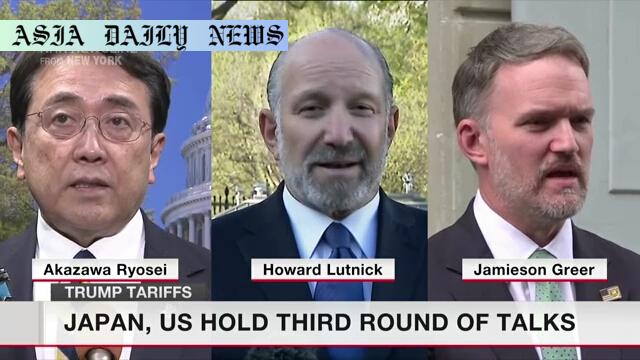Tariff Negotiations – Japan’s Akazawa Ryosei engages in in-depth talks with US officials as the two sides aim for constructive discussions.
The third round of Japan-US tariff negotiations took place in Washington.
Economic Revitalization Minister Akazawa Ryosei emphasized the importance of protecting national interests.
Both sides agreed on the urgency of continued high-level consultations.
Akazawa pressed for a review of US tariff measures and discussed economic security.
Future high-level talks including the US Treasury Secretary are anticipated.

Introduction: Context of the Japan-US Tariff Negotiations
Japan and the United States have been engaged in ongoing negotiations addressing various trade and tariff issues, with the third round of talks recently taking place in Washington. These discussions, led by Japan’s Economic Revitalization Minister, Akazawa Ryosei, and key officials from the US including Commerce Secretary Howard Lutnick and Trade Representative Jamieson Greer, reflect the commitment of both nations to resolve pressing trade differences. Both countries emphasized the importance of balancing urgency in decision-making with safeguarding national interests, a significant aspect of these comprehensive negotiations.
Examining the Key Issues: Trade, Tariffs, and Economic Security
During the discussions, Minister Akazawa strongly reiterated Japan’s position on reassessing the tariff measures imposed by the administration under former US President Donald Trump. The tariffs, which targeted a range of goods, have been a point of contention between the two nations. Akazawa emphasized that while swift resolutions are desirable, they should not come at the expense of Japan’s economic priorities and strategic goals. Additionally, the talks delved into exploring mutual cooperation avenues on economic security and broader trade expansion, demonstrating the multifaceted nature of this bilateral engagement.
Progress and Future Directions: Outcomes from Washington
The outcomes from the third round of negotiations point toward strengthened collaboration and agreement on maintaining robust, high-level consultations moving forward. Both nations appear poised for potential discussions between their respective leaders at the upcoming G7 Summit in Canada. Notably absent from the recent session was US Treasury Secretary Scott Bessent, whose future involvement is expected to add further dimension to these critical conversations. The emphasis on aligning trade policies with shared economic security objectives underscores the significance of these negotiations for both Japan and the US.
Conclusion: Moving Forward with Strategic Collaboration
As Japan and the United States continue to navigate these complex tariff negotiations, the focus remains on achieving a balanced outcome that serves their respective national interests while fostering greater economic cooperation. The dialogue serves as a reminder of the importance of diplomacy, careful deliberation, and strategic planning in addressing global trade challenges. The outcomes from these talks have the potential to not only redefine bilateral trade dynamics but also set a precedent for future international economic collaborations. High-level consultations are anticipated to play a crucial role in sustaining momentum as both sides prepare for further negotiations and potential policy shifts at the leadership level.
Commentary
The Importance of High-Stakes Tariff Negotiations
Trade and tariff negotiations between Japan and the United States hold immense significance not just for the two nations, but for global economic stability. These discussions highlight the intricate balancing act required in diplomacy where urgency must not compromise strategic goals. Minister Akazawa Ryosei’s steadfast commitment to protecting Japan’s national interests underscores the importance of deliberate and thoughtful decision-making—a lesson that resonates far beyond trade matters.
Key Challenges and Opportunities
One of the main challenges in such negotiations is finding a common ground that equally benefits both parties. The lingering effects of tariffs imposed under former President Trump’s administration have created tension, yet they also present an opportunity for both nations to explore avenues of mutual gain. By incorporating discussions on economic security into the negotiation framework, Japan and the US are taking a more holistic approach, ensuring that their agreements align with long-term security and growth objectives.
Looking Forward: Strategic Global Implications
As these negotiations progress, they pave the way for potential shifts in global trade dynamics. The willingness of both Japan and the United States to engage in high-level consultations and maintain open communication sets an important precedent for international diplomacy. Their engagement serves as a critical reminder of the importance of collaboration in addressing complex, multifaceted challenges—an enduring lesson for other nations seeking to navigate the ever-evolving landscape of global trade.


